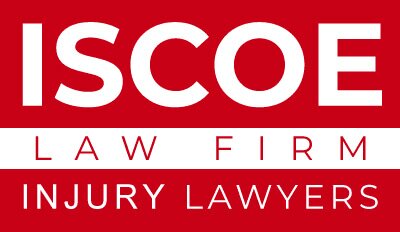Best Defamation Lawyers in United States
Share your needs with us, get contacted by law firms.
Free. Takes 2 min.
Or refine your search by selecting a city:
List of the best lawyers in United States
About Defamation Law in United States
Defamation law in the United States is designed to protect individuals from false statements that harm their reputations. Defamation can be either libel, which refers to written statements, or slander, which pertains to verbal statements. The key elements of defamation include a false statement, communication to a third party, fault amounting to at least negligence, and damages. The First Amendment provides significant protection to speech, particularly for matters of public concern, which can complicate defamation claims.
Why You May Need a Lawyer
There are several situations where legal help may be necessary for defamation issues. If you are accused of making a defamatory statement, a lawyer can help you build a defense, potentially proving the statement is true, an expression of opinion, or privileged communication. Conversely, if you believe you are a victim of defamation, an attorney can assist in gathering evidence, quantifying damages, and pursuing a lawsuit to seek compensation.
Local Laws Overview
Defamation laws in the United States can vary by state, but generally, they all require the plaintiff to prove specific elements such as the falsity of the statement and actual harm. Differences in state laws may include the statute of limitations for filing a claim and specific privileges or defenses available. For example, some states require proof of actual malice for claims involving public figures or matters of public concern.
Frequently Asked Questions
What constitutes defamation?
Defamation involves false statements about someone communicated to a third party, resulting in harm to the person's reputation.
What is the difference between libel and slander?
Libel refers to written defamation, while slander involves verbal defamatory statements.
Can truthful statements be considered defamation?
Truthful statements are generally not considered defamation, as truth is a complete defense against defamation claims.
What are common defenses against a defamation claim?
Common defenses include truth, opinion, privilege, and consent.
How do damages work in defamation cases?
Damages can include actual losses, such as lost income or economic opportunities, and general damages for harm to reputation.
What is "actual malice" in defamation cases?
Actual malice refers to making a statement with knowledge of its falsity or with reckless disregard for the truth, particularly relevant for public figures.
Can public figures sue for defamation?
Yes, but public figures must prove actual malice to succeed in a defamation claim.
How does the First Amendment affect defamation cases?
The First Amendment protects free speech, which means courts carefully balance defamation claims against freedom of expression, especially for matters of public interest.
Is there a time limit to file a defamation lawsuit?
Yes, statutes of limitations vary by state but typically range from one to three years from when the defamatory statement was made or discovered.
Do online statements count as defamation?
Yes, online statements can constitute defamation if they meet the required legal elements.
Additional Resources
For further assistance, consider reaching out to the American Bar Association or consulting with a local attorney specializing in defamation. The Electronic Frontier Foundation also offers guidance on internet-related defamation issues.
Next Steps
If you need legal assistance in defamation matters, start by gathering any evidence related to the statements, such as copies of publications or recordings. Then, consult with a qualified attorney who can provide advice on your specific situation. Many attorneys offer initial consultations to evaluate the merits of your case.
Lawzana helps you find the best lawyers and law firms in United States through a curated and pre-screened list of qualified legal professionals. Our platform offers rankings and detailed profiles of attorneys and law firms, allowing you to compare based on practice areas, including Defamation, experience, and client feedback.
Each profile includes a description of the firm's areas of practice, client reviews, team members and partners, year of establishment, spoken languages, office locations, contact information, social media presence, and any published articles or resources. Most firms on our platform speak English and are experienced in both local and international legal matters.
Get a quote from top-rated law firms in United States — quickly, securely, and without unnecessary hassle.
Disclaimer:
The information provided on this page is for general informational purposes only and does not constitute legal advice. While we strive to ensure the accuracy and relevance of the content, legal information may change over time, and interpretations of the law can vary. You should always consult with a qualified legal professional for advice specific to your situation.
We disclaim all liability for actions taken or not taken based on the content of this page. If you believe any information is incorrect or outdated, please contact us, and we will review and update it where appropriate.
Browse defamation law firms by state in United States
Refine your search by selecting a state.















